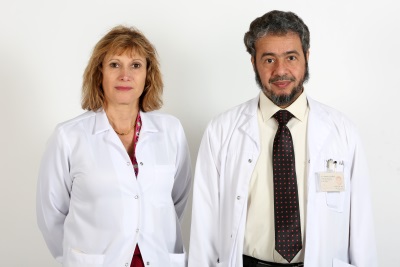Heroes of Infection Prevention 2016
- About APIC
- Vision and mission
- History
- Leadership
- Tania Bubb
- Patricia Jackson
- Lisa Sturm
- Devin Jopp
- Deborah Patterson Burdsall
- Lisa Caffery
- Jill Holdsworth
- Monika Pogorzelska-Maziarz
- Sarah Smathers
- Elizabeth R. Wallace
- Harold “Pat” Patton
- Joseph Scaletta
- Carol M. McLay
- Justin Smyer
- Mary Jo Morrison
- Paula Ann Pintar
- Stephanie Carraway
- Leadership Development
- Chapters
- Panels
- Bylaws
- Contact us
- Committees
- Awards
- Research Awards
- 2020 Research Awards
- Research Awards
- Heroes Implementation Research Scholar Award
- Heroes of Infection Prevention Award
- Heroes of Infection Prevention 2022
- Heroes of Infection Prevention 2020
- APIC 2022 Heroes Elizabeth (Beth) Richardson, MPH, MSN, RN, CIC
- APIC 2021 Heroes Khaled Alnafee
- APIC 2022 Heroes Erin Minnerath, Tiffany Martens, and Angie Silva
- APIC 2021 Heroes Lisa Sturm
- APIC 2022 Heroes Patrick Gordon, DNP, RN, CIC
- APIC 2021 Heroes Tampa General Hospital
- APIC 2022 Heroes Kelley Knapek, BSN, RN, CIC, CWON
- APIC 2021 Heroes Jeremy Gibson-Roark, Leslie Lloyd
- APIC 2022 Heroes Jodie Leonard, BS, RN, CIC
- APIC 2022 Heroes Jeffrey Miller, MD, MPH, CIC
- APIC 2020 Heroes Northside Hospital – Gwinnett Medical Center
- APIC 2020 Heroes Regions Hospital
- Heroes of Infection Prevention 2019
- APIC 2020 Heroes Kelly West and Craig Gilliam
- APIC 2020 Heroes Westchester Medical Center IPC Team
- APIC 2020 Heroes Brenda Ehlert
- APIC 2020 Heroes Emory University Hospital Midtown
- Heroes of Infection Prevention 2018
- Heroes of Infection Prevention 2017
- Heroes of Infection Prevention 2016
- Heroes of Infection Prevention 2015
- Heroes of Infection Prevention 2014
- Heroes of Infection Prevention 2013
- Heroes of Infection Prevention 2012
- Heroes of Infection Prevention 2011
- Heroes of Infection Prevention 2010
- Heroes of Infection Prevention 2009
- Heroes of Infection Prevention 2008
- Heroes of Infection Prevention 2007
- Heroes of Infection Prevention 2006
- APIC/AJIC Publication Excellence Award
- Distinguished Awards
- Chapter Awards
- Presidents’ Distinguished Service Award
- Scholarships
- Award Recipients 2019
- Awards Overview
- Membership Sections
- Corporate/System Level Director IP Section
- Oncology Section
- IP Informatics Section
- Critical Access Hospitals (CAH)
- Ambulatory Care section
- Behavioral Health section
- EMS/Public Safety section
- Home Care section
- International section
- Long-Term Acute Care (LTAC) section
- Long-Term Care (LTC) section
- Minority Health and Safety section
- Pediatrics section
- Public Health section
- Veterans’ Affairs (VA) section
- For Media
- Staff Directory

Meeting a challenge through vision and teamwork
Suliman Aljumaah, MD, ICHE & Irene Barron, ICHE
King Faisal Specialist Hospital & Research Centre
Riyadh, Saudi Arabia
Dr. Suliman Aljumaah and Irene Barron embraced a challenge and in just two years created a world-class infection control and hospital epidemiology department.
In 2013, the senior leadership at King Faisal Hospital recognized that their infection control program was operating far below its potential due to lack of structure, staff, and consistency. Early the next year they charged Aljumaah, who soon appointed Barron to partner with him, with restructuring and re-invigorating the department to make it more efficient and effective.
Leveraging their combined 36 years of infection prevention experience, Alumaah and Barron focused on creating structure and teamwork to accomplish their charge. “We formed a vision of where we wanted the department to go,” Aljumaah said. “Our goal was to develop a sustainable department with a system and clear descriptions of roles and expectations.”
The pair then implemented processes and changes that supported their vision. Among many tactics, they created and filled vital department positions with people who shared their vision, increased training programs, instituted consistent and engaging department meetings, implemented a fully integrated CERNER computerized surveillance system, and coordinated the hospital’s first infection prevention and control workshop (attended by 450 delegates). Additionally, they constantly promoted collaboration—as well as both professional and personal development—among infection prevention and control team members.
“What started out as a very frustrated group evolved into an open, problem-solving team,” said Barron.
And this team has generated impressive results. Between 2014 and 2015, rates for numerous infections dropped across the hospital’s eight ICUs as real-time and electronic reporting, as well as a 24-hour infection control and hospital epidemiology on-call system, became effective. The infection control and hospital epidemiology department staff more than doubled (from 10 to 22) and infection prevention team-member certification and higher education increased four-fold.
“We still have work to do, but we’ve come a long way through structure and collaboration,” Aljumaah said.

